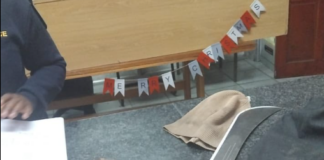
Following her notable absence at the Basic Education Law Amendment (Bella) Bill signing ceremony on Friday, Minister of Basic Education Siviwe Gwarube has clarified her absence, stating that it is not a boycott against a departmental activity.
Gwarube told ENCA that, despite her differing views on the Bella law, her absence was not an act of boycott against any departmental activity. She also revealed that she had urged the president to refer the bill back to Parliament for reconsideration under Section 79 of the Constitution.
“I did not boycott any departmental activities. I simply did not attend and indicated to the president and I also think it’s important to note that the president was aware of my absence. I did indicate to the president that I would not be in attendance at the signing ceremony,” said Gwarube.
Although the African National Congress (ANC) and Democratic Alliance (DA) share power, their views on a number of critical issues remain divergent. The bill signed by President Ramophosa on Friday was approved by the ANC-dominated National Assembly in May, but the DA rejected it.
Gwarube’s absence can be attributed to her party’s position on the new Bella law, as the DA is staunchly against it. The party argues that some provisions of the bill will reduce the authority of school boards and centralise decision-making power.
Ramaphosa suspended the implementation of certain provisions of the bill—Clause 4 and 5—that are opposed by their GNU partner, DA, and other organisations such as Trust vir Afrikaans Onderwys. These two clauses concern strengthening government oversight over language and admission policies.
Speaking at the Bella bill signing ceremony on Friday, Ramaphosa said: “This will give the parties time to deliberate on these issues and make proposals on how the different views may be accommodated. Should the parties not be able to agree on an approach, we will proceed with the implementation of these parts of the bill.”
Following the signing of the Bill, the DA issued a statement stating that the party “ has instructed its lawyers to continue to prepare for court action” against the new bill.
The statement read: “We note President Ramaphosa’s statement, at the signing ceremony of the BELA Bill today, that the implementation date of its most controversial clauses will be postponed for three months for further discussions on the current impasse relating to Sections 4 and 5 of the Bill.
“However, the DA also note the President’s comment that “should the parties not be able to agree on an approach, then we will proceed with the implementation of these parts of the Bill.
“This means that if there is no agreement, the ANC will proceed with implementing the clauses that empower provincial departments to over-ride school governing bodies on the issue of the language policy of schools.
“The DA rejects this threat by the President.”
Under the new bill, school admissions and the language of instruction will be regulated by the government. Homeschooling will be regulated, and parents and guardians who fail to ensure their child is in school may face jail time. Grade R—for four- and five-year-olds—will be the new compulsory school starting level, and the abolition of corporal punishment will be backed by fines and possibly jail time for those who administer it.







